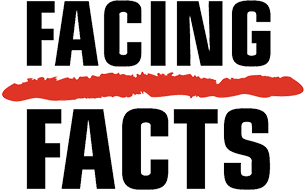Registrations open for online course: Police discrimination and hate crime
11/09/2024
Registrations are now open until 23rd September. Click here.
Find all the information in our information sheet.
Discrimination, in all its forms, significantly harms the relationship between law enforcement and the communities they serve, particularly those vulnerable to hate crimes. Despite its importance, the topic of police discrimination such as racial profiling is often overlooked in hate crime training programs. This course takes a multi-stakeholder approach to address these issues, aiming to foster long-term collaboration among police forces, civil society, public authorities, and equality bodies for the benefit of hate crime victims and affected communities.
Who is this course for?
- Police officers across the EU of any rank who want to learn and share about different forms of discrimination and how to treat people equally and fairly while being an effective police officer.
- Representatives of community organisations that support victims of hate crime and are involved in improving police and community relationships
- Individuals from any professional background who are committed to constructive police-community dialogue and willing to have challenging discussions for the benefit of victims of hate crime and affected communities.
- Representatives of equality bodies who want to learn and share how to monitor discrimination and hold police accountable.
What will I learn in this course?
- Understand and identify the nature and impact of key forms of discrimination in the context of hate crime and policing (historical, individual, systemic and institutional)
- Learn and apply evidence-based practices in promoting fair policing, including building strong community relationships and utilising data to uncover and address disproportionality and bias in policing.
- Identify and co-produce strategies to challenge discriminatory practices in the context of hate crime responses using multi-stakeholder approaches
How will I benefit from this course?
- Social Learning: Benefit from cohort-based learning with three live tutorials and create your own projects with expert support.
- Networking opportunities: Connect with police, civil society and other stakeholders in our participant-led online sessions.
- Real Case Studies: Explore case-study scenarios from a victim’s perspective
- Multi-Perspectives: Gain a more balanced and nuanced understanding of discriminatory policing from different perspectives.
- Gain access to experts: Lead tutor, Joanna Perry from the Facing Facts Online team brings her expertise gained from advising IGOs, national authorities and CSOs on hate crime responses as well as academic research and teaching. Over the three week course, she will be joined by experts on discrimination in policing. Learners will be able to directly engage with the tutor team during weekly tutorials and receive feedback on their mini-projects.
Discover 3 Blocks in 3 Weeks!
Module 1: Key dimensions of discrimination and racism 29 October – 5 November
Module 2: Community and police perspectives on the nature and impact of police discrimination 5 – 12 November
Module 3: Case studies – applying what you have learned 12 – 21 November
Engage with participants from police, civil society, public authorities, and communities. Guided by expert tutors, you will explore the root causes and complexities of discriminatory profiling practices and delve into real case studies from the perspectives of victims, civil society, and police officers.
What technology do I need?
Learners will need to access the course platform hosted on Moodle. Weekly tutorials will take place over Zoom. Technical assistance will be available.
Certificate
Receive a certificate of completion from Facing Facts Online, the leading platform for online learning on hate crime and hate speech.
Limited spots!
Facing Facts is offering a promotional fee since this will be our first cohort on this topic.
Only 139 € for civil society organisations
Only 199 € for police and public authorities
Registration opens on 1st September and closes on 23rd September. Submit your application here.
What is the application process?
The Facing Facts Online team will carefully review applications with the aims and learning objectives of the course in mind. A commitment to multi-stakeholder learning and cooperation is required. Applicants will be selected on the basis of their application to ensure a balanced mix of police, civil society and other representatives.



 Facing Facts is co-funded by the Citizens, Equality, Rights and Values Programme
Facing Facts is co-funded by the Citizens, Equality, Rights and Values Programme